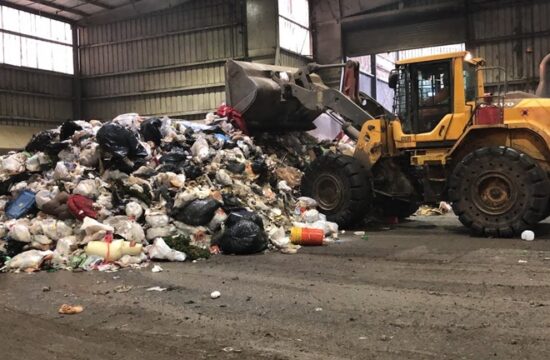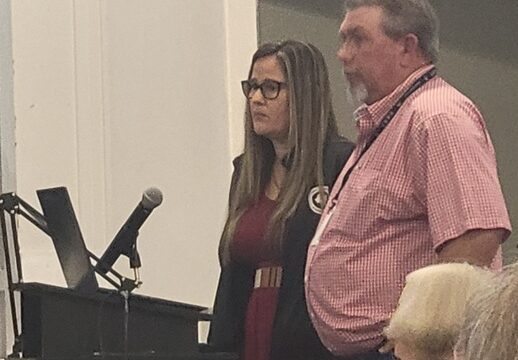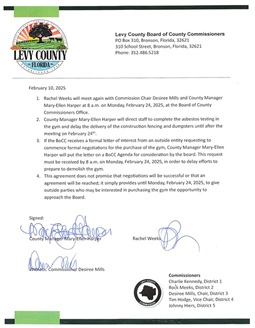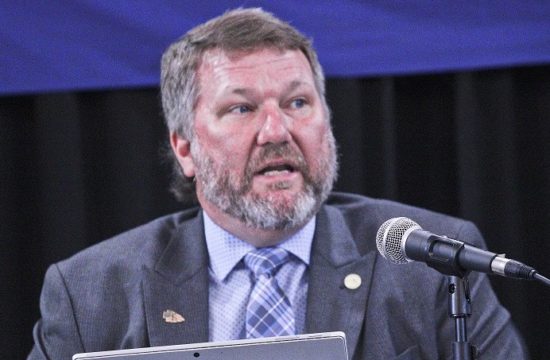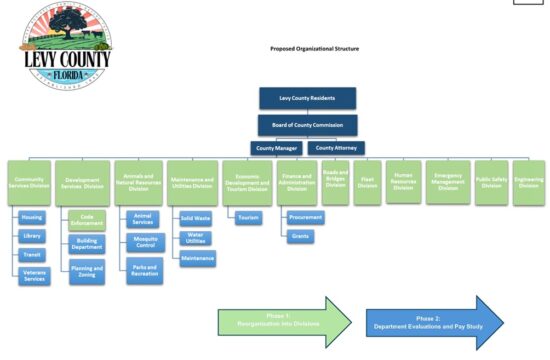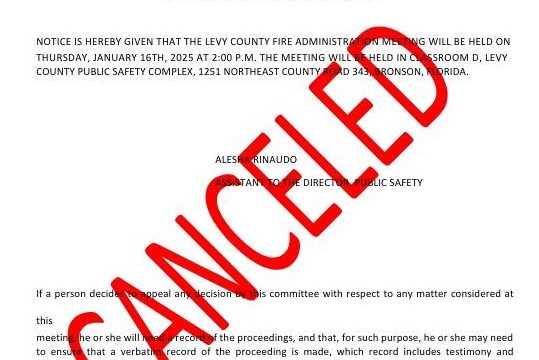By Terry Witt – Spotlight Senior Reporter
In the 1990s, controversy erupted in Levy County over a relatively new type of agriculture that was smelling up some neighborhoods and poisoning the aquifer with nitrogen.
Traditional Levy County cattle ranches and row cropping operations that were a staple of agriculture for generations weren’t causing problems. It was the intensive cattle feeding operations.
Intensive agriculture had come to Levy County.
White Feedlot, located about a mile from the spring run at Manatee Springs State Park, packed thousands of steers into a relatively small feedlot to fatten cattle for market. The unintended side effect was that the cattle manure polluted the aquifer with nitrates. The smell of the feedlot wasn’t nice, either.
When the feedlot was shut down, White Farms was required to supply drinking water to families living in the area of Clay Landing Road that had wells contaminated by high nitrate levels.
During roughly the same time frame, a commercial dairy farm along County Road 347 west of Chiefland sprayed large amounts of liquid manure on its fields as fertilizer. It was a legal practice, but the liquid manure, when the wind was blowing hard in the wrong direction, sometimes sent a plume of choking manure odor into parts of Chiefland.
The dairy was sold and replaced with a grass dairy which is basically odor free, much like the existing cattle ranches of Levy County today. When cattle are free to graze on open range, instead of being clustered together in massive feeding operations, odors generally aren’t a problem nor are nitrates.
Much of this history has been lost over time, but the question of what types of intensive agriculture should be allowed in Levy County, and where, or should any future intensive cattle feeding operations be allowed in Levy County is back on the table for discussion by the Levy County Commission.
An Oct. 18 commission workshop that focused on revisions to the Levy County Land Development Code mentioned intensive farming along with a hundred other topics. Most of the commissioners on the county commission don’t have a background in large commercial dairies or livestock feedlots nor do they live next door to those types of farming operations and some may be too young to recall the battles over intensive cattle feeding operations back in the day.
Levy County’s population is considerably larger than it was in the early 1990s. With residential areas rapidly filling, is there enough space to build large intensive livestock feeding operations in the county – feedlots or dairies? Some say no. Disposing of the manure without destroying the property values of neighboring residential properties or polluting the aquifer are issues that arise when concentrated cattle feeding operations want to locate in Levy County. Levy County aquifer, which is the county’s drinking water supply, is close to the surface of the land and easily polluted by nitrogen from cattle manure.
Alliance Dairy north of Chiefland is an exception. The dairy converts manure into electricity through a process that harvests methane and uses it to produce electrical power for the dairy. Removing methane reduces manure odors considerably. The process also reduces nitrogen. It is an example of how a large commercial dairy can harness a byproduct of its operations to reduce odors and save money. The dairy has been there for many years.
Levy County’s current Land Development Code allows intensive agriculture by special exception in Agriculture Rural Residential Areas and Forestry Rural Residential areas. ARR and FRR zones cover most of the county’s rural areas. The special exception process involves notifying neighbors living next door to the operation and holding public hearings. The Levy County Commission decides whether to allow or disallow the farming enterprise.
Spotlight asked Stacey Hectus, the county’s planning and zoning director, where the county would allow intensive agriculture like commercial dairies, cattle feedlots, pig feedlots, or animal processing facilities in ARR or FRR zones. Or is everything in ARR and FRR fair game for intensive farming operations? Those two zones also allow residential development as well as agriculture.
“What specific areas of the county would be open to intensive agriculture operations in ARR and FRR zones?” she was asked.
“This is why they go through the Special Exception,” Hectus said. “It gives the public an opportunity to voice their concerns if they are near one of these. Most of these types of businesses try to purchase land segregated away from subdivisions and other predominantly residential parcels or areas. Special Exceptions get a notice in the paper (newspaper), signs on the property, letters to surrounding homeowners, and one hearing at the Planning Commission and two at the Board of County Commissioners where we address the issues you are describing above.”
Commissioners may decide not to tamper with the current rules governing intensive farming. They also have the option are paring down the areas where intensive farming might be allowed to the most sparsely populated sections of the county, or not allowing intensive livestock feeding operations at all, knowing the potential collision with angry neighbors no matter where these farms are allowed to operate due to odor, flies, and nitrates. Is Levy County too populated for any new super-sized livestock feeding operations?
One thing is certain. Public input on proposed changes to land use and zoning doesn’t draw big crowds in Levy County, whether it’s intensive farming or regulating subdivisions. The board is aware from past experience that few members of the public attend these hearings or workshops on proposed land use changes, except for realtors and developers. The commission goes it alone for the most part. Few residents read the fine print in the back section of newspapers announcing the hearings and workshops. When the bulldozers arrive in the neighborhood to start clearing land, everyone notices.
Too late then.
As best we can tell, the next step in the process of discussing changes to the county the Land Development Code will take place at the Nov. 22 Levy County Commission meeting when special exceptions and specially regulated land uses will be discussed. Specially regulated land uses are a new category of lightweight regulation. County staff can approve projects using a checklist of requirements that must be met, but the county commission would never see the paperwork or get involved in the process of review. Commissioners haven’t formally approved the use of specially regulated land uses.
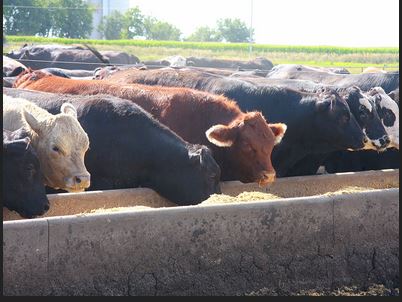
—————————–
Board of County Commission Land Use Workshop October 18, 2022; Posted November 5, 2022




